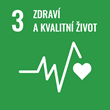
Informace o projektu
Systematic study of IgG4-autoimmune diseases to develop new treatment strategies
(IgG4-TREAT)
- Kód projektu
- 101119457
- Období řešení
- 9/2023 - 8/2027
- Investor / Programový rámec / typ projektu
-
Evropská unie
- Horizont Evropa
- Marie Skłodowska-Curie Doctoral Networks (MSCA DN)
- Fakulta / Pracoviště MU
- Lékařská fakulta
- Spolupracující organizace
-
Universiteit van Amsterdam
University of Istanbul
Université Paris 1 - Sorbonne
Universiteit Maastricht
Medizinische Universitaet Wien
- Odpovědná osoba Mag. Katarzyna Kuzmicz-Kowalska, PhD
National & Kapodistrian University of Athens
Mondino Foundation
ETHNIKO KAI KAPODISTRIAKO PANEPISTIMIO ATHINON
Charité - Universitätsmedizin Berlin
Christian-Albrechts-Universtät zu Kiel
Leiden University Medical Center (LUMC)
Sanquin
Universitätsklinikum Schleswig-Holstein
Tzartos - Diagnosis & Research in Neuroimmunology Medical Limited Liability Company
Azienda ospedaliero-universitaria pisana
IgG4-autoimmune diseases (IgG4-AID) are rare but collectively correspond to a significant group of devastating diseases affecting many different organs, e.g. skin, brain, nerves and kidney in patients that often remain unresponsive to current treatments. IgG4-AID have commonalities indicating a shared underlying immunopathogenesis that make a joint approach to identify new therapeutic targets and test new treatment strategies feasible and necessary. We hypothesize that genetic risk factors and a dysregulated immune response may lead to an increased susceptibility to produce antibodies targeting self-proteins. These are of a special subclass called IgG4, which are usually harmless but can cause disease in these patients by interfering with normal functions in the body. We are the first consortium that aims to study IgG4-AID comparatively, including pathogenic IgG4, and the cells, molecules and mechanisms involved in IgG4 autoantibody production, using an explorative multi-omics approaches in combination with state-ofthe- art cell and molecular biology methodology. We will establish a new humanized mouse model of IgG4-AID for the development and testing of a novel immune-apheresis based therapy aimed as immediate relief therapy for all IgG4-AID patients. Our innovative training program combines university-based and multidisciplinary research-based training with state-of the art web-based training and in-person trainings by the academic and nonacademic sector. We aim to foster a new generation of experts in IgG4-AID that are 1) are highly employable both in the academic and industry sectors and qualified for innovative multidisciplinary translational research with a focus on biomedical product development and 2) equipped with the skillsets for digitalization, awareness for gender equality and diversity and competent in sustainable research and innovation approaches to address current and future challenges, such as climate change, social inequalities and pandemics.
Cíle udržitelného rozvoje
Masarykova univerzita se hlásí k cílům udržitelného rozvoje OSN, jejichž záměrem je do roku 2030 zlepšit podmínky a kvalitu života na naší planetě.


